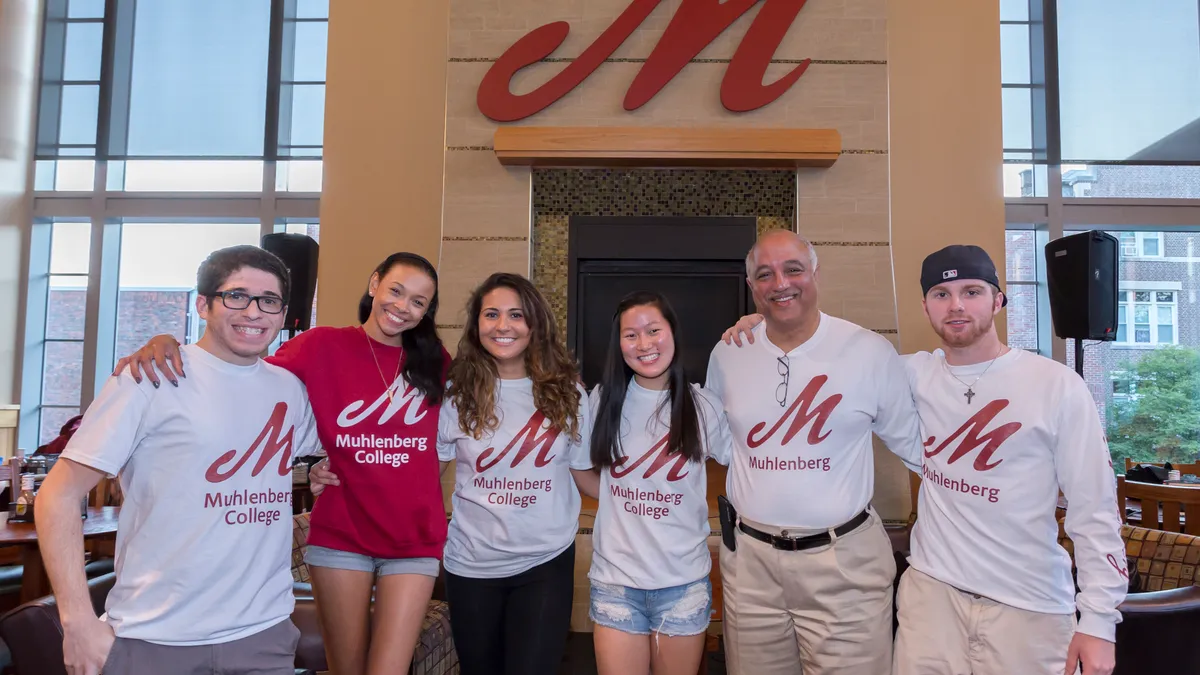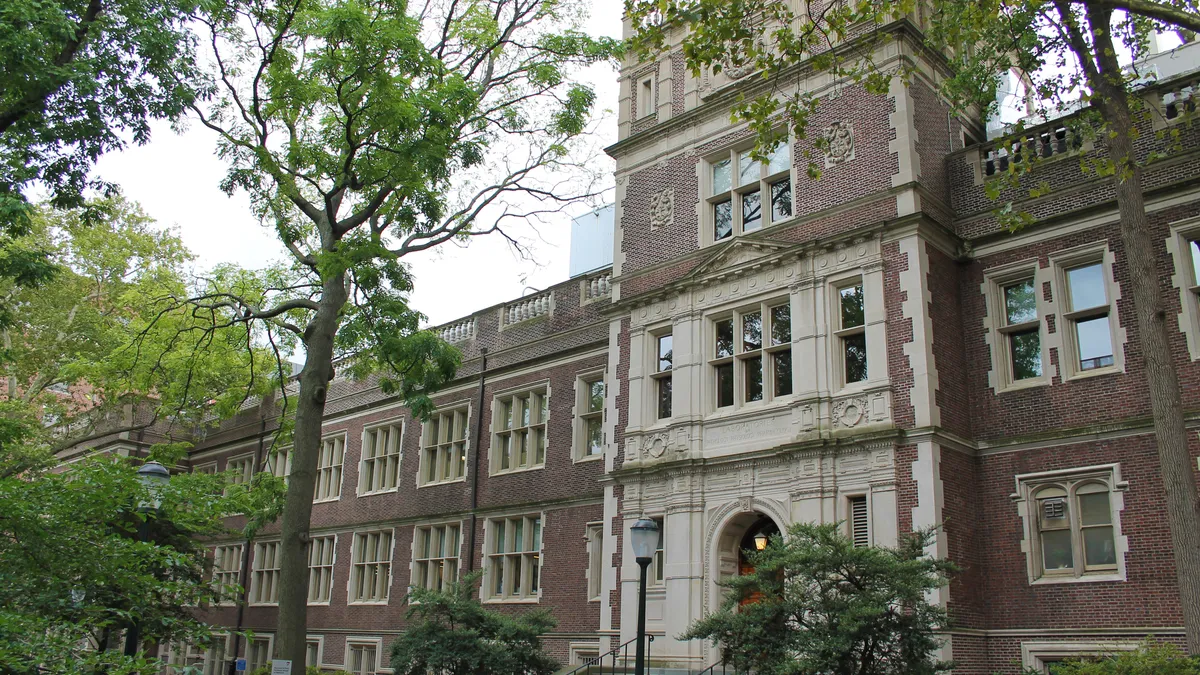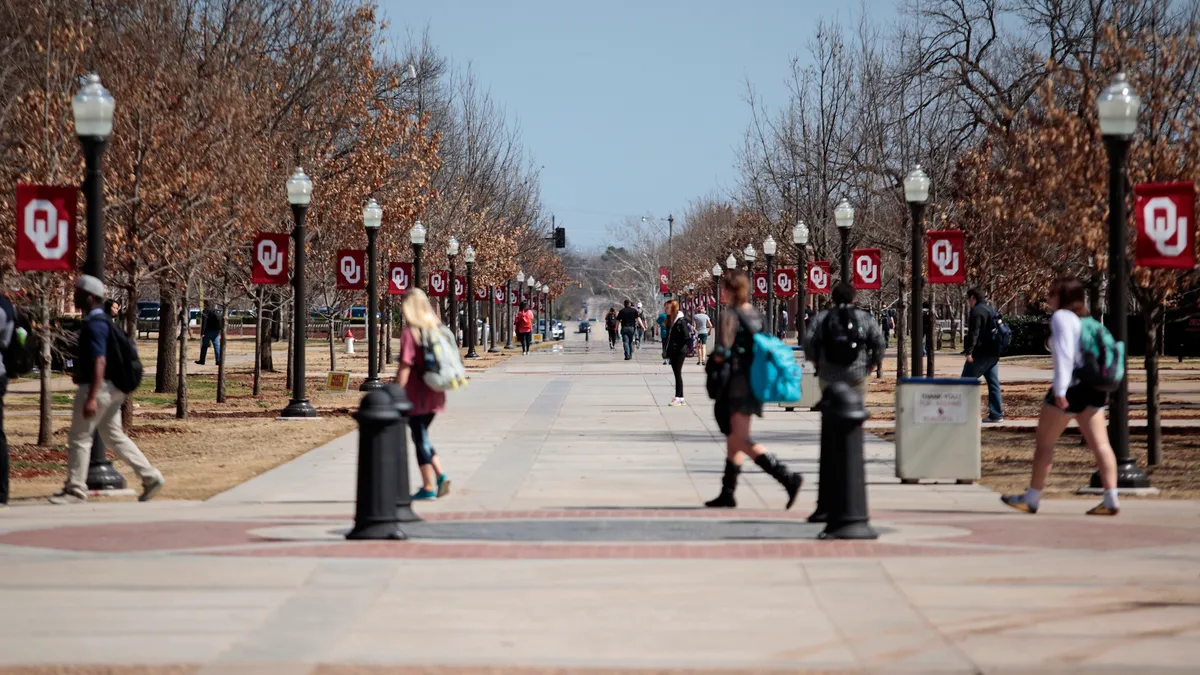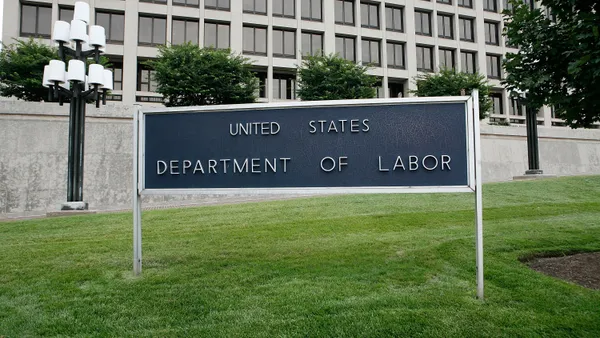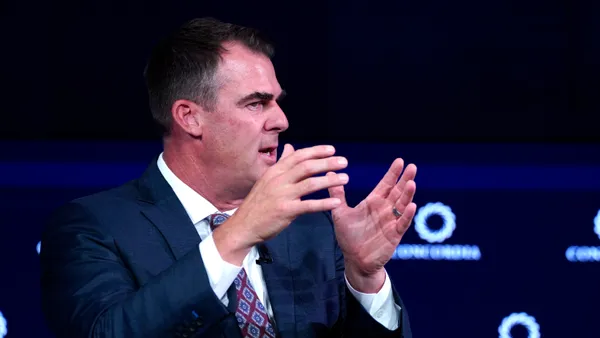The following is a guest post written by John I. Williams, Jr. Williams is the current president of Muhlenberg College and has served on Amherst College's board of trustees for 31 years.
This year’s World Economic Forum (WEF) in Davos, Switzerland, discussed the top ten skills that will be needed for careers in 2020:
- Complex problem solving
- Critical thinking
- Creativity
- People management
- Coordinating with others
- Emotional intelligence
- Judgment and decision making
- Service orientation
- Negotiation
- Cognitive flexibility
The list is remarkable, both for what it includes and for what it doesn’t; and for the fact that it is as timeless as it is forward-looking. For our purposes, it serves as a useful gauge for the value of the education our students receive at highly-selective liberal arts colleges.
As I reflect upon the list, I realize graduates of top liberal arts colleges will smile as they read it, reminded that their education focuses on skills that will be valuable across a lifetime. The record of how well liberal arts colleges have helped students achieve their career ambitions is a strong one. For example, alumni of liberal arts colleges are over-represented among leaders of Fortune 500 companies. In 2010, the late Steve Jobs pointed out how valuable a liberal arts education is, even at tech companies. "It’s in Apple’s DNA that technology alone is not enough," he said. "It’s technology married with liberal arts, married with the humanities, that yields the results that make our hearts sing."
Going forward, college graduates may work for nine or more organizations over the course of their careers. They will almost certainly need to engage with co-workers living in countries all over the world. They will manage products and processes invented long after they graduate. For example, current first year students were born into a world without Google. In just 18 years, Google – or, if you like, Alphabet – has grown from a startup to the world’s most-valued company. Now, in just a few years, these same students will emerge from college into a world that promises self-driving cars, autonomous drone-delivered packages and massive databases in which one’s every taste and choice is analyzed in order to maximize profit.
Yet, for all this techno-wizardry, the critical skills on WEF’s list for careers in 2020 resemble closely those that have defined the leaders who have emerged from top liberal arts colleges for decades. These colleges have structured their academic curricula and residential life programs in ways proven over time to produce graduates who excel in all of these skills. Specifically, regardless of major, liberal arts graduates tend, to an extent greater than graduates of other programs, to demonstrate the following skills:
- Effective thinking, writing and speaking skills
- Competency in writing clear and cogent expository prose
- Basic skills of language acquisition and usage
- The ability to understand and utilize mathematical and/or logical relationships, to analyze data, to construct and assess arguments and to make sound judgments
- The technical skills, problem-solving ability, judgment and courage necessary to create new work in the visual, performing and literary arts, together with the knowledge of the theory, history and social context of artistic practice
- The ability to interpret and evaluate issues of human concern, experience and expression by means of analysis, critical reasoning and historical reflection
- Understanding of human activity and world views across time, geography and cultures
- Facility with biological, computational, mathematical and physical theories and paradigms, using quantitative and scientific problem solving skills to investigate natural phenomena
- Understanding of how modern institutional structures and social, political, economic and cultural practices shape and are shaped by individual choices, group behavior, and public policies, developing an understanding of the operations of power and ideology across social contexts, relationships and practices
- Understanding of human difference and the intellectual and civic skills required for participation in an increasingly diverse and interconnected world
The overlap with the World Economic Forum’s list couldn’t be stronger, and that’s because careers of the future will emphasize so many of the multi-dimensional cognitive skills and reflective, adaptive habits of mind developed at fine, highly-selective liberal arts colleges.
At the same time, top liberal arts colleges have always been committed to preparing students for more than just career success, including contributions to society more broadly. These colleges have always focused not only on the development of students’ intellect but on their character as well. Their alumni view service to others as a core element of life success. They go on to support their families and serve local communities faithfully and effectively as civil servants, volunteers, political and civic leaders, clergy, physicians, research scientists, philanthropists and in many other roles.
Impact on the world around us requires a combination of intellect and an ethical framework that prepares graduates to sort right from wrong, and better from worse. Our nation’s best liberal arts colleges continue to evolve over time in a variety of ways. Thankfully, some dimensions remain the same. As the good people in Davos keep coming up with new lists, top liberal arts colleges will keep doing what we’ve done for generations: educating the next generations of successful leaders who will go on to change the world.


